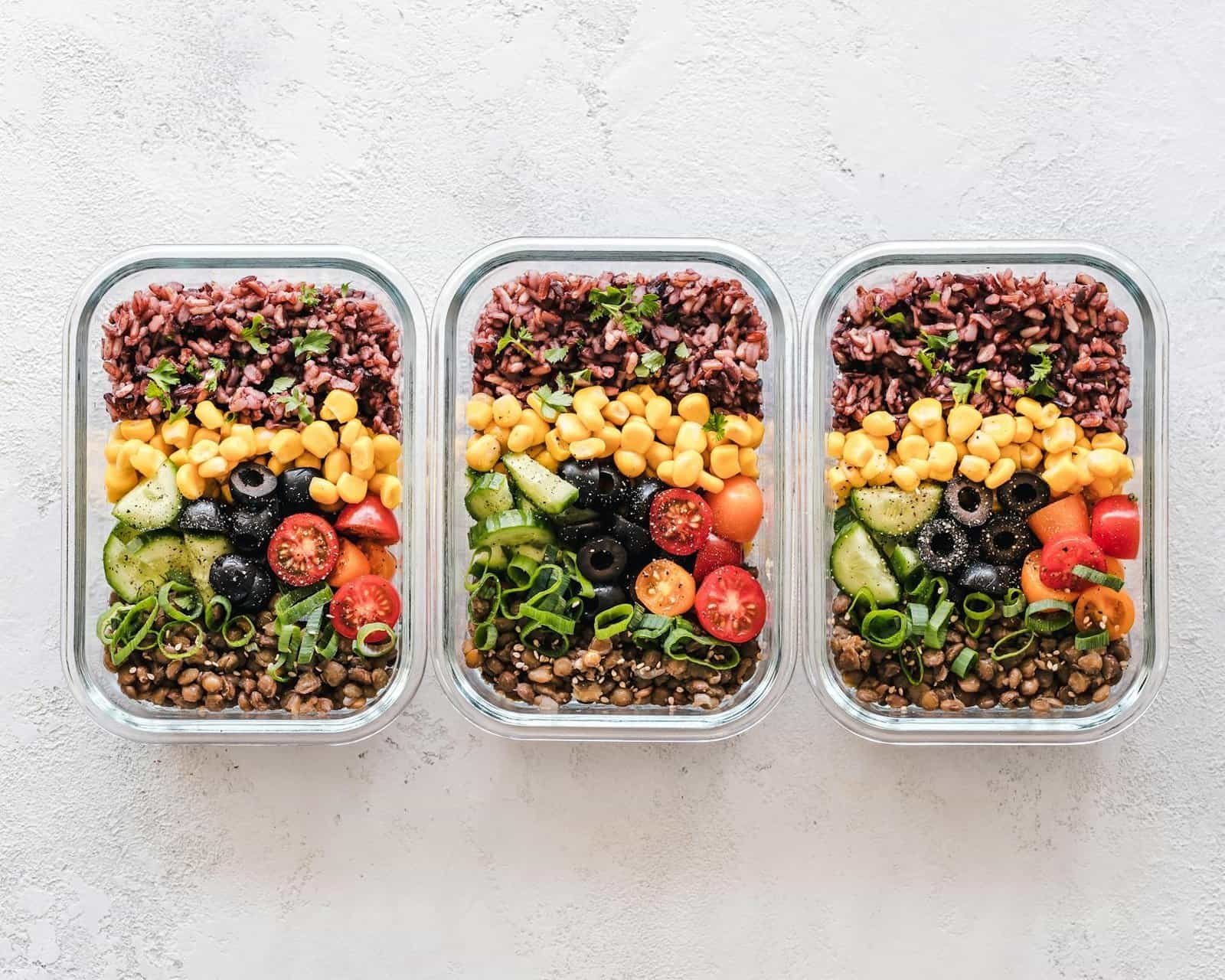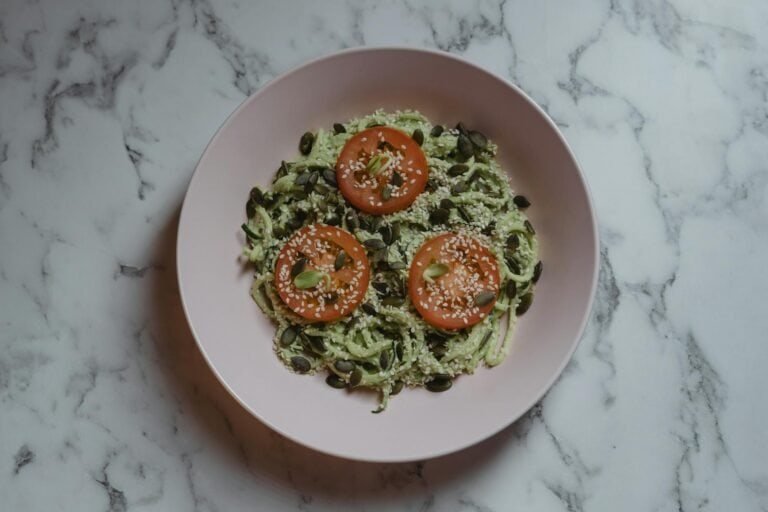Streamline Your Nutrition: The Ultimate Guide to Meal Planning
Benefits of Meal Planning
Meal planning offers a multitude of benefits that can help streamline your nutrition and make your life easier. By taking the time to plan your meals in advance, you can enjoy both time-saving benefits and improvements to your overall health and nutrition.
Time-Saving Benefits
One of the key advantages of meal planning is the time it can save you in the long run. By dedicating a specific time to plan and prepare your meals, you can reduce the amount of time spent each day on deciding what to eat and cooking. This can be particularly beneficial for individuals with busy schedules or those who find themselves frequently eating out or relying on convenience foods.
With a well-thought-out meal plan, you can save time by:
- Making fewer trips to the grocery store by purchasing all the necessary ingredients in one go.
- Minimizing food waste by using ingredients efficiently throughout the week.
- Prepping ingredients in advance, allowing for quicker and easier cooking during busy weekdays.
By streamlining your meals through planning, you can reclaim valuable time that can be used for other activities or self-care.
Health and Nutrition Benefits
Meal planning also offers numerous health and nutrition benefits. When you plan your meals in advance, you have greater control over the ingredients and portion sizes, allowing you to make healthier choices. Here are some ways meal planning can enhance your health:
- Balanced Nutrition: Planning meals in advance enables you to ensure that your meals are well-balanced and provide all the necessary nutrients your body needs. You can incorporate a variety of food groups such as lean proteins, whole grains, fruits, and vegetables, ensuring a well-rounded diet.
- Portion Control: By pre-portioning your meals during the planning stage, you can prevent overeating and maintain portion control. This can be particularly helpful for individuals looking to manage their weight or adhere to specific dietary goals.
- Dietary Restrictions: Meal planning allows you to easily accommodate dietary restrictions or preferences. Whether you follow an anti-inflammatory diet, require vegetarian recipes, or are on a low-carb diet, meal planning allows you to customize your meals accordingly.
- Food Allergies and Intolerances: If you have food allergies or intolerances, meal planning can provide peace of mind. By carefully selecting ingredients and preparing meals at home, you can reduce the risk of accidental exposure to allergens. Learn more about managing food allergies in our article on food allergies.
By incorporating meal planning into your routine, you can experience the time-saving benefits and improve your overall health and nutrition. Stay tuned for the next sections of our ultimate guide to meal planning, where we will delve into the process of getting started and provide practical tips to make meal planning a seamless part of your lifestyle.
Getting Started with Meal Planning
To embark on a successful meal planning journey, it’s essential to start by setting your goals and understanding your dietary needs. These two aspects lay the foundation for creating a meal plan that is tailored to your specific needs and preferences.
Setting Your Goals
Before diving into meal planning, take a moment to define your goals. What do you hope to achieve through your meal planning efforts? Your goals could vary depending on factors such as weight management, improving overall health, or adhering to a specific dietary plan like low carb or anti-inflammatory diets. By identifying your goals, you can align your meal planning strategies accordingly.
Some common goals you might consider are:
- Weight loss or maintenance: If weight management is your primary objective, you can create a meal plan that focuses on portion control, calorie counting, or incorporating more nutrient-dense foods.
- Improving overall health: If you aim to enhance your overall health, you can plan meals that prioritize whole foods, lean proteins, and a variety of fruits and vegetables.
- Adhering to dietary restrictions or preferences: If you have specific dietary needs or preferences such as being a vegetarian or having food allergies, you can tailor your meal plan to accommodate these requirements. Incorporating vegetarian recipes or avoiding allergens will be essential.
By setting clear goals, you can create a meal plan that serves as a roadmap to help you achieve your desired outcomes.
Understanding Your Dietary Needs
Understanding your dietary needs is crucial when it comes to meal planning. It involves considering factors such as your daily calorie intake, macronutrient requirements, nutritional deficiencies, and any specific dietary restrictions you may have.
To gain a better understanding of your dietary needs, you can:
- Calculate your daily calorie requirements: Determine the number of calories your body needs to maintain or achieve your desired weight. This can be done using online calculators or consulting with a registered dietitian.
- Assess your macronutrient needs: Understand the ideal distribution of macronutrients (carbohydrates, proteins, and fats) based on your goals and dietary preferences. For example, if you are following a low carb diet, you may need to limit your carbohydrate intake.
- Identify any nutritional deficiencies: If you have any known nutritional deficiencies, consider incorporating specific foods or supplements into your meal plan to address these deficiencies.
- Consider dietary restrictions or preferences: If you have any dietary restrictions or preferences, such as food allergies or being vegetarian, it’s important to account for these when planning your meals. This ensures that your meal plan aligns with your specific needs and avoids any potential complications. Check out our article on food allergies for more information.
By understanding your dietary needs, you can create a meal plan that is well-balanced, nourishing, and supports your overall health and well-being.
As you venture into the realm of meal planning, setting clear goals and understanding your dietary needs will set you up for success. This knowledge will guide you in selecting the right recipes, portion sizes, and ingredients that will help you achieve your desired outcomes.
Practical Meal Planning Tips
To make meal planning a smooth and efficient process, it’s important to consider practical tips that can help you stay organized and save time. Two key aspects of practical meal planning are creating a weekly meal plan and prepping ingredients in advance.
Creating a Weekly Meal Plan
Creating a weekly meal plan is a fundamental step in meal planning. It allows you to map out your meals for the week, ensuring that you have a well-balanced and nutritious diet. By taking the time to plan your meals in advance, you can avoid last-minute decisions that may lead to unhealthy food choices or unnecessary stress.
When creating a weekly meal plan, consider the following:
- Set a Schedule: Determine the number of meals you need to plan for each day and the specific times you typically eat. This will help you structure your meal plan accordingly.
- Consider Your Goals: Take into account your dietary goals, whether it’s following a low-carb diet, incorporating more vegetarian recipes, or adhering to an anti-inflammatory diet. Tailor your meal plan to align with your specific needs.
- Variety and Balance: Aim for variety in your meals to keep things interesting and ensure you obtain a wide range of nutrients. Include a mix of lean proteins, whole grains, fruits, vegetables, and healthy fats in your plan.
- Plan for Leftovers: Consider incorporating meals that can be easily reheated or repurposed for leftovers. This can help save time and reduce food waste.
- Make a Shopping List: Once you have your meal plan, create a comprehensive shopping list to ensure you have all the necessary ingredients on hand.
Prepping Ingredients in Advance
Prepping ingredients in advance is a time-saving strategy that can streamline the meal preparation process throughout the week. By dedicating some time to prep ingredients ahead of time, you can significantly reduce the time spent on cooking and make weeknight meals more manageable.
Consider the following tips for ingredient prepping:
- Batch Cooking: Prepare larger quantities of staple ingredients such as grains, proteins, and vegetables. These can be portioned and stored in the refrigerator or freezer for future use.
- Chop and Slice: Pre-cutting vegetables, fruits, and herbs can save time during meal preparation. Store them in airtight containers or resealable bags to maintain freshness.
- Marinades and Sauces: Prepare marinades and sauces in advance and store them in the refrigerator. This allows flavors to develop, making mealtime preparation faster and more flavorful.
- Pre-Portion Snacks: If you enjoy snacks throughout the day, pre-portion them in individual containers or bags. This makes it easier to grab a healthy snack on the go and helps with portion control.
By incorporating these practical meal planning tips into your routine, you can save time, reduce stress, and ensure that you have nutritious meals readily available throughout the week. Stay organized, track your progress, and adjust your meal plan as needed to make the most out of your meal planning efforts.
Making Meal Planning a Habit
Once you’ve started meal planning and experienced the benefits, it’s important to make it a consistent habit. This will help you maintain a healthy eating routine and streamline your nutrition. Two key aspects of making meal planning a habit are staying flexible and tracking your progress.
Staying Flexible
While meal planning provides structure and organization to your eating habits, it’s essential to remain flexible. Life can be unpredictable, and unforeseen circumstances may arise that require adjustments to your meal plan. By staying flexible, you can adapt your meal plan to accommodate changes in your schedule, preferences, or availability of ingredients.
If you find yourself deviating from your planned meals, don’t stress. It’s perfectly okay to make substitutions or swap meals around to fit your needs. The goal is to create a framework that supports your nutritional goals while allowing room for spontaneity and variation. Remember, meal planning is a tool to simplify your life, not a rigid set of rules.
Tracking Your Progress
Tracking your progress is a vital component of making meal planning a habit. By monitoring and evaluating your meal planning efforts, you can identify areas for improvement and stay motivated on your nutrition journey. Here are a few ways to track your progress:
-
Record Your Meals: Keep a food journal or use a meal tracking app to log what you eat each day. This will help you stay accountable and provide insights into your eating habits.
-
Evaluate Nutritional Balance: Assess the nutritional balance of your meals. Are you meeting your daily requirements for macronutrients (carbohydrates, proteins, and fats) as well as micronutrients (vitamins and minerals)? Adjust your meal plan as needed to ensure a well-rounded diet.
-
Reflect on Your Goals: Regularly reflect on the goals you set when starting your meal planning journey. Are you progressing towards those goals? Are there any changes or adjustments you need to make to align your meal plan with your objectives?
-
Seek Feedback: Share your progress with a trusted friend, family member, or healthcare professional. Their feedback and support can provide valuable insights and help you stay on track.
Remember that meal planning is a continuous process of learning and refinement. Be patient with yourself as you navigate this new habit and make adjustments along the way. Celebrate your successes and learn from any challenges you encounter. With time, meal planning will become second nature, and you’ll reap the long-term benefits of a well-structured and nutritious eating routine.
By staying flexible and tracking your progress, you can establish meal planning as a sustainable habit that contributes to your overall health and well-being. Make sure to check out our other articles on anti-inflammatory diet, vegetarian recipes, low carb diet, and food allergies for more information on specific dietary considerations and meal ideas.







